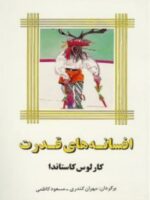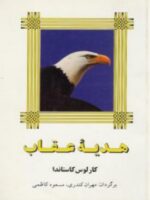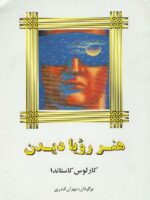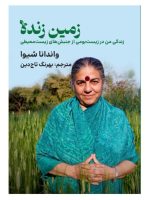
Carlos Castaneda, previously Castaneda, (December 25, 1925- April 27, 1998) was an author of a controversial series of books that claimed to describe his training in traditional Native American shamanism (ancient Toltec sorcery).
Castaneda claimed to have met a Yaqui shaman named Don Juan Matus in 1960. Castaneda’s experiences with Don Juan allegedly inspired the works for which he is known. He claimed to have inherited from don Juan the position of nagual, or leader of a party of seers. He also used the term “nagual” to signify that which is unknowable, neither known nor knowable; implying that, for his party of seers, don Juan was a connection in some way to that unknowable. The term has been used by anthropologists to mean a shaman or sorcerer who is capable of shapeshifting, or changing to an animal form, and also to mean the form to which such a person might shift.
Castaneda’s works contain descriptions of paranormal or magical experiences, several psychological techniques, Toltec magic rituals, shamanism and experiences with psychoactive drugs (e.g. peyote). Carlos Castaneda’s works have sold more than 8 million copies in 17 languages.
He wrote that he was born in Sao Paulo, Brazil on Christmas Day in 1931, but immigration records show that he was born 6 years earlier in Cajamarca, Peru. He moved to the United States in the early 1950s and became a naturalized citizen in 1957. He was educated at the University of California, Los Angeles (UCLA) (B.A. 1962; Ph.D. 1970). Castaneda was later stripped of the Ph.D. on the grounds that he presented fiction in the place of proper ethnographic research.
His first three books, Journey To Ixtlan were written while Castaneda was an anthropology student at UCLA. Castaneda wrote these books as if they were his research log describing his studies under a traditional shaman he identified as don Juan (used the name Juan Matus, but not the man’s ‘real’ name). Castaneda was granted his masters and doctoral degrees for the work described in these books, although he later had his Ph.D taken away for pretending his fiction was actual anthropological research.
In Castaneda’s first two books he describes that the Yaqui way of knowledge also required the heavy use of powerful psychoactive or entheogenic plants, such as peyote and datura. In his third book, Journey to Ixtlan, he essentially reverses his emphasis on ‘power plants’. In this book he describes don Juan telling him he only needed to use drugs with Carlos because Carlos was so dumb. In this book the way of knowledge that don Juan describes was perceived by some as resembling the newly popular New Age movement. Castaneda, however, emphatically denied any real similarity between them in several lectures.
Castaneda was a popular enough phenomenon for Time magazine to do a cover article on Castaneda on March 5, 1973 (Vol. 101 No. 10) that was five or six pages long.
His fourth book, Tales Of Power, ended with Castaneda leaping off a cliff marking his graduation from disciple to man of knowledge (actually a leap from the tonal into the unknown). Some writers thought this must necessarily mark the end of his series. They were very surprised to see he continued to produce more books. Despite an increasingly critical reception Castaneda continued to be very popular with the reading public. Twelve books by Castaneda have been published, and 3 videos released.
In 1997 Castaneda launched a lawsuit against his ex-wife, Margaret Runyon Castaneda, over her book, A Magical Journey with Carlos Castaneda; but this was dropped when Castaneda died.
The official story is that Castaneda died on April 27, 1998 from liver cancer in Los Angeles. Little is known about his death. There was no public service, Castaneda was apparently cremated and the ashes were sent to Mexico.
(From: Biblio)















